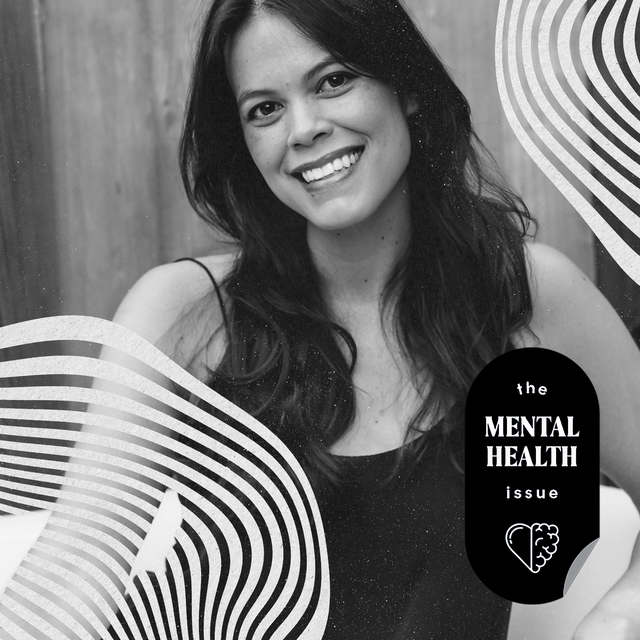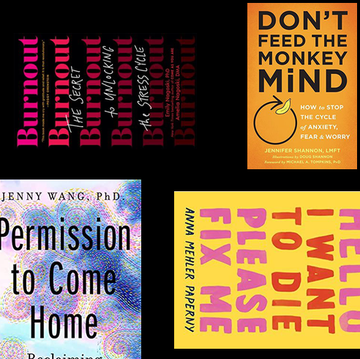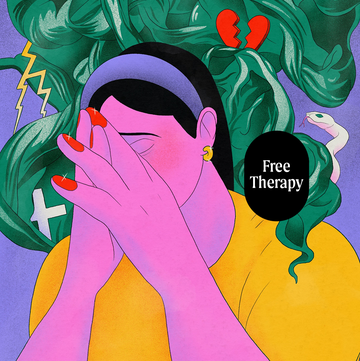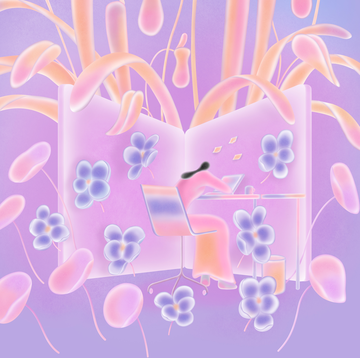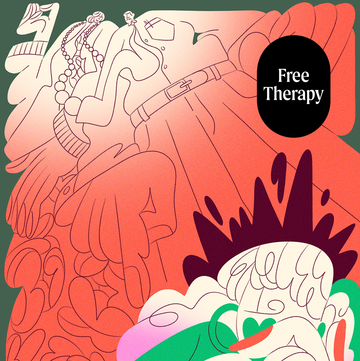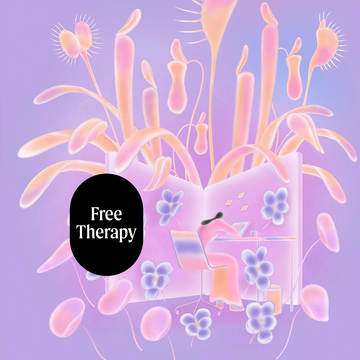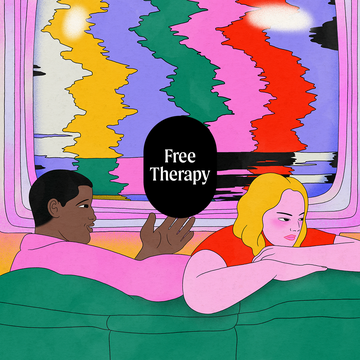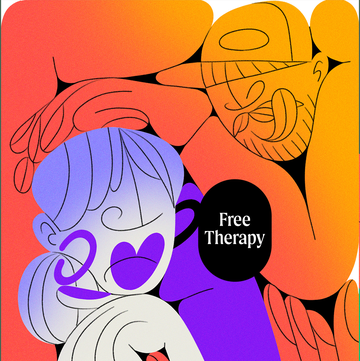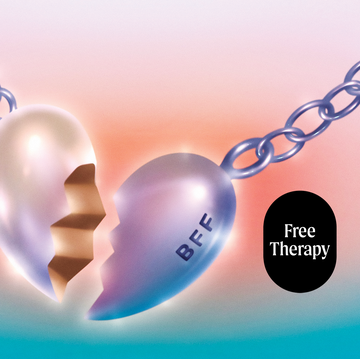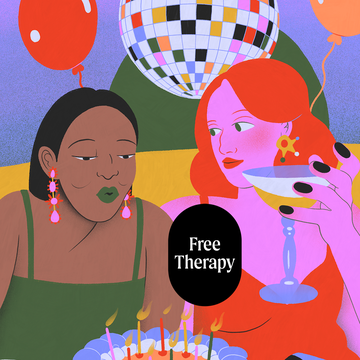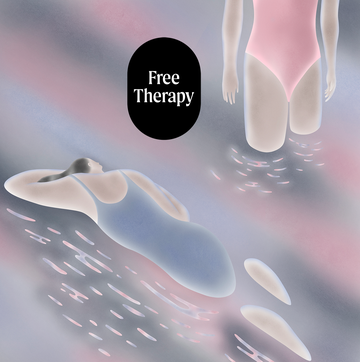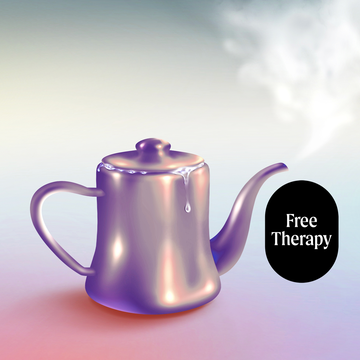Content warning: This story contains details about suicidal ideation. If you are having thoughts of suicide, call or text 988 to be connected to a Suicide & Crisis Lifeline counselor at no cost to you.
I used to believe that healing was effortless, that it was something that just happened to you. I assumed that like a cut, my internal wounds would naturally heal with time if I didn’t do anything to irritate or infect them. I thought that if I just forgot about what I went through, my pain would fade away. If only healing were that easy.
I’ve had a few traumatic experiences over the course of my life. While each one shook me to my core, I never recognized that what I’d been through was traumatic. Because I was never harmed physically, I was always able to convince myself that what I went through wasn’t a big deal. But I was wrong.
As the daughter of a refugee with a traumatic past, I experienced the effects of unhealed trauma as a young girl. My mother loved me and always wanted to provide me with opportunities she’d never had. But when I’d pushed her buttons, she’d explode, chasing me around the house and threatening to beat me with a broom. While she never struck me, I was terrified, and I’d spend hours hiding in my closet crying. I always thought that it was my fault. I thought that if I didn’t talk back, if I were as smart as my older sister or if I were just a better person, I wouldn’t have made her do that to me. These memories were too painful to hold, so I buried them and didn’t look back.
When I was 26, on my way to the farmers market one morning, I had to run for my life when a man began chasing after me. I breathlessly screamed for help, hoping someone would hear me, but there wasn’t anyone around. In survival mode, I jumped in front of the first car I saw—I would have rather been hit by a car than suffer an attack. Getting the driver’s attention was enough to scare my pursuer off, and I ended up walking away untouched. I told myself, Get over it. It wasn’t that bad, and I forced myself to move on.
Then, 18 months later, I witnessed my friend running out of a bathroom with tears streaming down her face after being drugged and sexually assaulted by a man I knew. What started out as an enjoyable evening of catching up over wine turned into a nightmare that I couldn’t forgive myself for. I felt guilty for not being able to stop it from happening, and I was afraid: Being so close to what happened that night made me feel like it could have just as easily happened to me. And because a stranger had invited himself to put his hands in my shorts in college and because I was sexually harassed by a work colleague when I was 22, I felt like something similar would happen to me. Yet because it was my friend who suffered the assault, and not me, I pushed my fears aside.
Soon I became a person who was terrified of the world. I never felt safe, even in my own home. Every time I heard an unexpected noise, like a knock on the front door, my heart would race. I had visions of myself opening the door and getting beaten, kidnapped, or raped. I started to experience anxiety daily, and a few mornings each week, I’d wake up in sweat-drenched sheets in a panic after having a nightmare. Little by little, these symptoms intensified, and eventually, they made it impossible to work, sleep, or hold conversations with my partner. I felt like I was losing my mind, and at the time, I didn’t have a clue why. But I was determined to find out.
I reevaluated every aspect of my life. I first thought that one of my clients who never paid me on time might be responsible for making me anxious, so I stopped working with that company. I thought that I might have been spending too much time on social media, so I implemented a “no social media after 7:30 p.m.” rule (probably for the best). I took a mini vacation to a tiny town in wine country and stayed in a B&B with no technology—just board games, books, and fire pits. I thought my diet wasn’t nutritious enough, so I got back on my plant-based regimen and cut back on alcohol. I was living the healthiest, most relaxing life I knew how to live, but the anxiety and panic were still there. I was desperate to find some relief; I just wanted to be able to feel “normal” again. I finally realized that I needed help from a professional, so I sought treatment from a psychologist, which led to a diagnosis of post-traumatic stress disorder (PTSD).
As I worked to manage my PTSD symptoms in therapy, I continued to struggle with nightmares, anxiety, and depression. Healing doesn’t happen overnight—unfortunately, your therapist can’t magically heal your wounds for you. Nightmares and panic attacks made my first year of marriage so much more challenging and less fun than I wished. When I had vivid dreams and intrusive thoughts about a rapist coming to attack me, I didn’t want to be touched or anywhere near men. Severe anxiety made it impossible to function day to day, and when depression came, I wanted to disappear. I felt worthless, like I was damaged and had no purpose in life. I asked myself, Why me? Why did I have to go through trauma? Why can’t I be “normal”?
I let some relationships fall apart because I didn’t want people in my life to see me struggling. When I could, I avoided people, making excuses for not meeting up for lunch, or going to events. Whenever I had to see people for work or social gatherings, I scraped up all the energy I could to put on a show, pretending to be cheerful and confident. But the moment I’d get back home (or the second I made it into my car), I’d burst into tears and cry, sometimes for hours. It was painful to hide what I was going through, but telling people wasn’t an option: I thought it would be the worst thing if they ever found out. I was ashamed.
After nearly a year of treatment and being intentional with my healing, I noticed my progress. My anxiety softened, nightmares and panic attacks became rare, and I started retrieving the confidence I had lost while suffering. I realized that what happened to me wasn’t my fault—that trauma cannot be prevented—and that struggling with PTSD wasn’t a weakness, but something that had helped me grow. I started seeing the positives woven within my healing journey, and I realized I had become a better person: more empathetic, compassionate, insightful, and emotionally intelligent. I decided to embrace my new life as a trauma survivor, including the painful moments that come along with it, which ultimately led me to find as much joy as I ever remembered having. For the first time in my life, I experienced self-love.
Even when my PTSD symptoms faded away, my healing journey wasn’t over. Having experienced trauma at a young age damaged my self-esteem, and since then, dozens of experiences—from being cheated on to being denied a promotion that I was promised—have reinforced this idea that I wasn’t enough, didn’t matter, and that there was something wrong with me. Healing from trauma isn’t just making peace with major events that happened: It also involves untangling deep-seated, inaccurate beliefs that we hold as a result of that trauma. Part of healing is letting go of these beliefs and then learning to accept ourselves as imperfect human beings.
I am still healing, and I’m more than okay with it. While healing can be excruciatingly painful, I’ve learned to cherish the journey. Getting to know yourself better can be incredibly fulfilling. Learning to let others see your pain can help create loving and supportive relationships. Shedding layers of shame often helps you reconnect with joy. Healing brings so many gifts, and while I am not grateful for having experienced trauma, I am grateful that healing has helped me grow into a person I’m proud of.
Nobody ever showed me how to tend to my emotional wounds. If anything, my parents, teachers, and societal mores taught me to suppress my feelings and “move on.” I tried that and it only caused more pain; once, it even led to a suicide attempt. When I was suffering, I didn’t think that healing was possible. I thought that I was broken and that I’d just have to get used to living with fear and piercing shame. I gave up on myself once, but I’m so glad I haven’t again. Healing is possible, friends.
Since I began sharing my story about healing from trauma, many survivors have asked me, “How do I heal?” Now that I’ve been on this journey for four years, I’ve realized that healing isn’t something that can be easily taught. There is no single way to heal; healing from trauma is a deeply personal journey. Each traumatic experience carries its own complexities, and we’re all unique individuals with different personalities and preferences. There’s an infinite number of paths one could take to heal, and part of healing is figuring out what combinations of activities are best for you, whether that includes therapy, mindfulness, spirituality, or creativity. Our needs can also change; I’ve been a hundred different versions of myself since I’ve started healing, and my needs at the beginning of my journey are not the same as my needs now. As humans, we continuously evolve, and our healing requirements also evolve as we come across new obstacles and opportunities along the way.
Healing looks different for everyone, so please don’t compare my journey (or anyone else’s) to yours. My story is one of millions, and my experience doesn’t mirror the experience of every trauma survivor out there. Each one of us faces unique challenges, and not everyone has access to the same resources and opportunities. Throughout my healing journey, I’ve had access to mental health care. I live in an environment where I feel safe. I have a supportive partner and financial stability. I’ve had so many advantages on this journey, and I know not everyone is in the same position. While hard work and dedication makes healing possible, it isn’t the only thing that helped get me to where I am today. If your healing journey doesn’t look like mine, that doesn’t mean you’re doing it wrong. Your healing doesn’t have to look a certain way for it to be valid.
If you too suffer from PTSD, I know things may be really painful right now. Surviving a traumatic experience is devastating, and it can turn your world upside down. While I wish you didn’t have to go through what you did, I’m proud of you for being here—even just reading this—and for showing up for yourself: It takes courage to face your past. While it will be messy and uncomfortable and challenging every step of the way, I can already tell you’ll have the strength to make it. It may not feel like it at this moment, but I promise you’re going to be okay.
Excerpted from You’re Going to Be Okay, by Madeline Popelka, published by Hay House, Inc. Copyright © 2022 by Madeline Popelka.

Madeline Popelka is the creator of the @HealingFromPTSD Instagram community (204K followers strong) and author of the book YOU’RE GOING TO BE OKAY, which came out in September 2022. To learn more about Madeline and her work, visit her website, at madelinepopelka.com.
